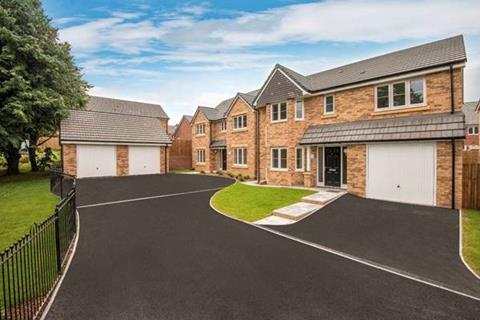Pre-tax profit hit by £20m charge despite record completions in first six months of the year
Bellway has reported a drop in pre-tax profit for the first half of its financial year after being forced to write-off another £20m for fire safety repairs to existing homes.
Pre-tax profit at the housebuilder fell by 4% to £280m despite strong trading in the six months to January 31 as the housing market surged back to life following the 2020 spring lockdown.

The firm said revenue for the period jumped 11% compared with the previous – pre-covid-19 – period, with sales of £1.72bn.
It built 5,656 homes in the period, a record for the group, but said that completion rates will fall in the second half of the financial year, putting it on course to build around 10,000 units in the twelve months to the end of July.
This is slightly above the 9,800 units it said in February that it expected to build this year.
This would be an increase of around a third on the covid-hit figure of 7,522 completions last year, but is still 8% down on the pre-covid 2019 figure.
The firm’s operating margin slipped back in the period, which it blamed on additional covid-related site costs and construction inflation. But, given the rise in volume, the firm’s operating profit remained marginally ahead of the 2020 figure.
However, the need to write off £20.2m related to necessary remediation work on 24 blocks previously built by Bellway forced the ultimate pre-tax profit down on the previous year.
Bellway said the provision for build defects which have emerged in the light of the failing exposed by the Grenfell Tower fire took the total spent by the company on fixing existing blocks since 2017 to £131m. This demonstrated Bellway’s “commitment to act responsibly with regards to this issue”.
It added that it was possible the figure could increase further.
Bellway said that trading since the interim result cut-off at the end of January had been “resilient”, at 263 sales per week, despite the continued lockdown measures. This was above the 191 sales recorded over the course of the first half of the year, but down from the 278 recorded in the equivalent post-election and pre-covid period in early 2020.
Jason Honeyman, group chief executive at the firm, welcomed what he said had been a successful transfer to the new Help to Buy scheme, along with the extension to the stamp duty holiday announced at the start of March. He said he was hopeful that the government’s new mortgage guarantee scheme will lead to the return of competitive higher loan-to-value mortgages, thereby promoting a “stable and sustainable” housing market.
He added: “If successful, this will underpin ongoing customer demand, while helping the sector to increase the much-needed supply of new homes.”











No comments yet